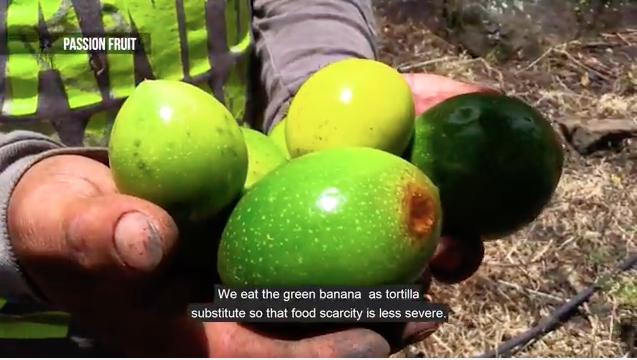The documentary film, “Ending Seasonal Hunger in Nicaragua” explores food cultures, agroecological farming practices, and innovative solutions to improve diets and reduce seasonal hunger among smallholder coffee farming families in northern Nicaragua. It captures breathtaking tropical landscapes and the daily rhythms of rural life connected to Nicaragua’s rich history of struggle and solidarity. The film highlights CAN’s collaborative action research with PRODECOOP, R.L., a 2,300-member coffee-farmer cooperative representing 10,000 people and a leader in the Fair Trade movement, CII-ASDENIC, and Santa Clara University, to promote food security and sovereignty.
View the video on CAN’s Youtube channel. There are four versions: English (full length & edited version) and Spanish (full length & edited version).
 In the film, cooperative members, students, researchers, and youth share their experiences with seed saving, grain banks, gardening, agroecology, community-based participatory action research, and water quality monitoring. Watch as they discuss the challenges they faced, their accomplishments, lessons learned, and the power of collaboration.
In the film, cooperative members, students, researchers, and youth share their experiences with seed saving, grain banks, gardening, agroecology, community-based participatory action research, and water quality monitoring. Watch as they discuss the challenges they faced, their accomplishments, lessons learned, and the power of collaboration.
Learn More about the work in Las Segovias.
To support community-based projects to end seasonal hunger, strengthen climate adaptation and ensure gender equity, DONATE here.
SPOTLIGHT
Working with CAN has Transformed My Life
Mirla, a member of CAN’s International Youth Network for Food Security & Sovereignty, became deeply involved with her cooperative, PRODECOOP, R.L., through CAN’s work to develop food storage and distribution centers known as CADAs (Centros de Acopio y Distribución de Alimentos), or grain banks. The main goal of the CADAs is to keep the surplus harvest of corn and beans in the community for re-distribution to cooperative member families and the broader community during months of seasonal hunger. CADAs work by purchasing corn, beans, and other staple crops from cooperative members; storing them; and then selling or loaning them back at below-market prices when food availability is scarce and market prices have tripled.








